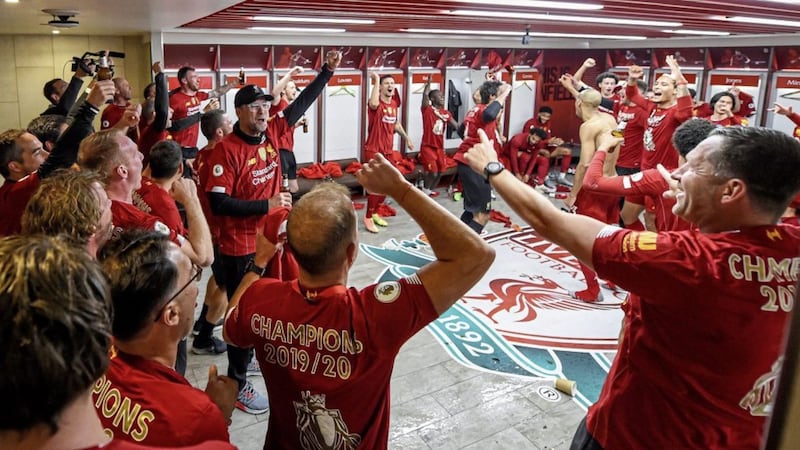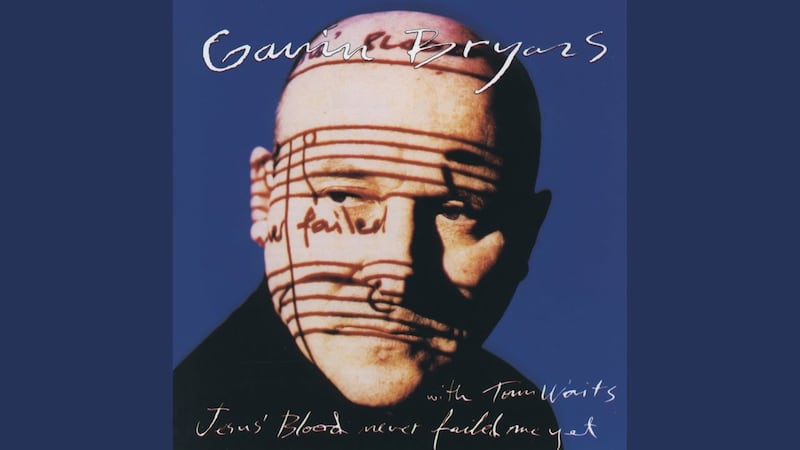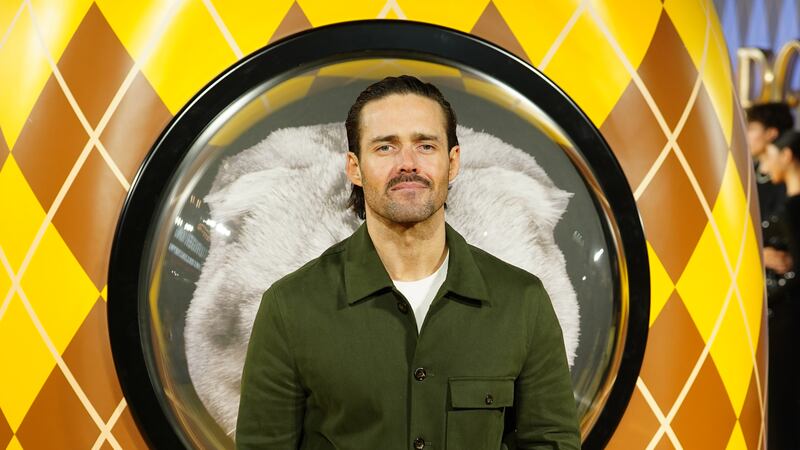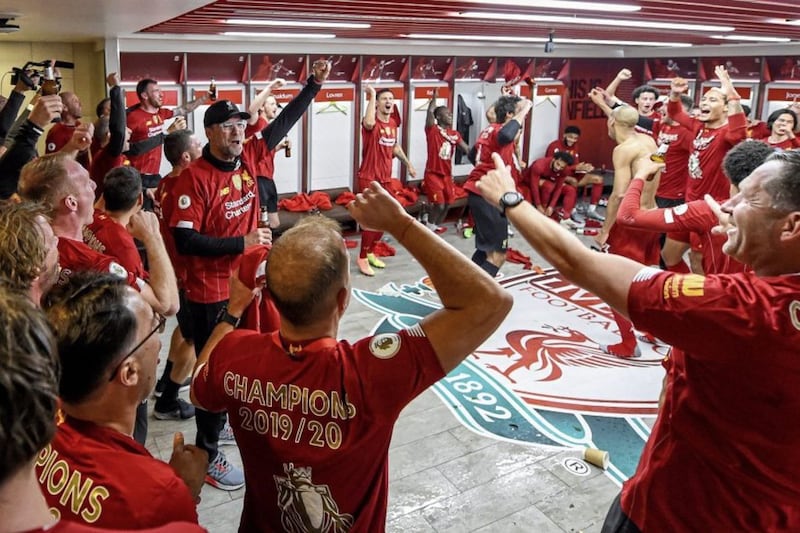ON JULY 22 the players, staff and supporters of Liverpool Football Club were able to experience a moment 30 years in the making.
Lifting the Premier League trophy aloft in front of an empty 53,000-capacity Anfield stadium, Liverpool’s victory was made all the sweeter given the trials and tribulations this close-knit team had overcome.
The club had claimed the elusive title in the midst of a global pandemic – one which saw football matches worldwide suspended for months on end and questions raised over whether the team would once again see victory snatched from their grasp.
Liverpool were indisputably in the form of their life; manager Jurgen Klopp stood arms akimbo on the touchline as the team took the title with seven games in hand.
In a season that will forever be immortalised as one of the most dramatic in sporting history, director James Erskine was there to capture every moment.
The driving force behind new sporting documentary The End Of The Storm, Erskine gains intimate access to some of the club’s top international players, alongside candid interviews with manager Klopp and club hero Sir Kenny Dalglish.
However, the Billie and One Night In Berlin film-maker is quick to assert that the documentary’s appeal isn’t restricted to Liverpool’s fiercely loyal fan base.
“It’s great if you’re a Liverpool fan but I think it illustrates, through Liverpool, the wider value of sport and the excitement and meaning that sport can give, especially when we’re not getting joy out of other things,” says Erskine.
“It’s this incredible story at the heart of it, but it’s actually about the value of the emotions that we can draw from watching a sport and watching it with our families. Fathers and sons or fathers and daughters [are] as important as the actual specificity of the club.”
It’s a view reinforced by the fact that Erskine himself has no connection to the Liverpool team.
“I support Man City,” he declares. “I grew up in Manchester, but sometimes if you’re making it from the outside you’re able to convey the reality of something more truly than if you are burdened with the weight of your own fandom.
The premise for the documentary emerged following the success of Erskine’s Amazon Prime series This Is Football; a series of six feature-length movies that delve into the emotional power sport possesses.
“We’d followed three Liverpool fans in Kigali, Rwanda, and used them to explore how football – and specifically their association with one football club – had allowed them to rebuild their lives and families post-genocide,” he says.
“That had won lots of awards and had great emotional impact and had been seen by the hierarchy of the club – even Jurgen himself had seen it and been moved by it. So, we were invited to come in and see if there was another film we wanted to make about Liverpool.”
Exploring the unique dynamic between managerial staff and players was always set to be an intrinsic part of the club’s story. Famed for his straight-talking attitude, Stuttgart native Klopp (53) has managed to create an atmosphere both inside and outside the dressing room that fosters loyalty and respect in equal measure.
“I think Jurgen would always say it was down to the players but I think Klopp obviously takes a huge amount of the credit,” says Erskine matter-of-factly.
“Over five years, he’s built a team around the way he wants to play – he’s tactically very clear. And I think he’s also able to psychologically support his players, possibly like no other coach. I think he’s able to get in their heads.”
However, Erskine makes clear that Klopp’s success as a manager has not materialised out of thin air.
“Klopp was not very successful as a player – he was successful and he got to be a professional player and that’s every boy’s dream, but as he said to me, ‘I do win a lot but I had to learn to win by losing a lot.’
“Interestingly in the film, we use Jordan Henderson quite a lot and explore Jordan Henderson as being a character who’s had very low moments in spite of great natural talent.
“I think when you understand the film the way that Jurgen has managed to bring the most out of Jordan as a player but also as a person, by the player’s own admission, then I think you start to understand the impact.
“The dynamic of Klopp’s influence on the club and how he built a much stronger fan base since he’d been there was the starting point – and then the pandemic kicked in and that made the story resonate that much more deeply.”
The impact of the pandemic was never a factor Erskine or his crew could ever have predicted. Combined with Liverpool’s track record for missing out on Premier League glory by the narrowest of margins, Covid-19 appeared to be the proverbial spanner in the works the club had been anticipating.
“There was always a [feeling] of ‘we’re just nervous of even saying that we’re going to make a film about ourselves – if we say that, maybe that’ll be the thing that jinxes it,’ Erskine continues.
“That was a real anxiety within the club. And then of course the truth is, it seems impossible that they cannot be granted the Premiership title – and then the pandemic happens.”
The knock-on effects of Covid on both the Premier League and filming were substantial, with huge potential ramifications should top-tier players find themselves infected with the virus.
“You’ve got to remember that these are superstar athletes of which the fortunes of many rely,” says Erskine. “They’re in their bubbles for the Premier League and if one of those players were to get Covid – especially at the end of last season – from us, that would have been disastrous economically for the club.”
“It’s what universalises the story,” he continues. “The pandemic is the great leveller, so rather than it being the division between fans and superstar athletes, everybody is experiencing the same things.
“If you can’t go to work, if your family members are ill or dying, those things are universal – and that’s one of the interesting things that the film is able to convey.
“Ultimately, once you strip away the bulls**it, actually, those players are just fans who happen to have a super talent.”
:: The End Of The Storm is available to own on digital, DVD & Blu Ray from November 30.



